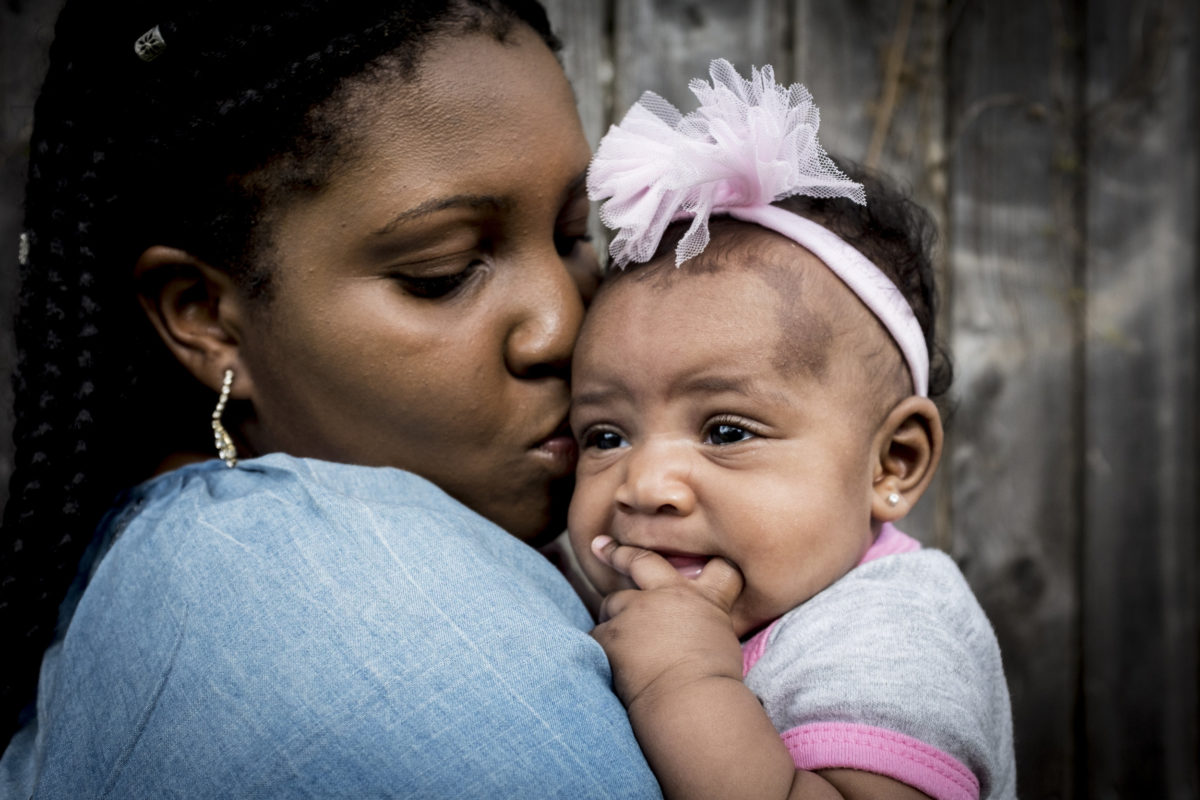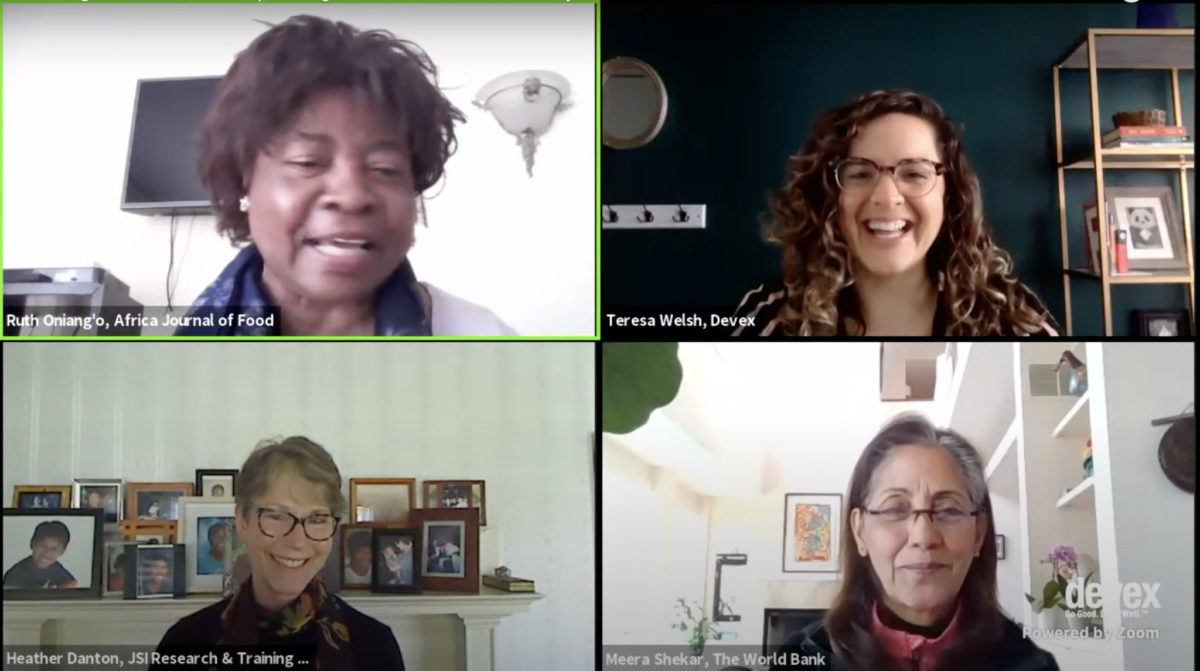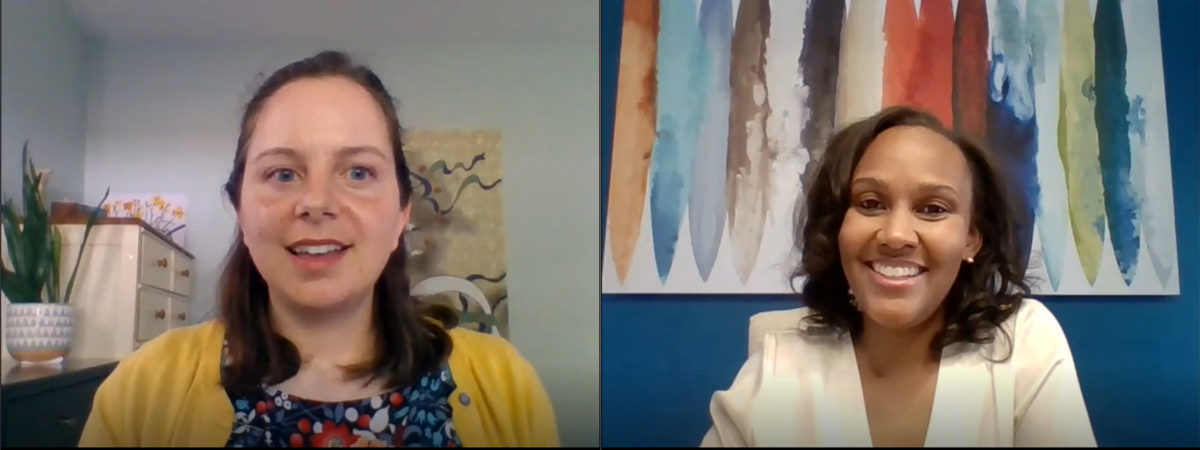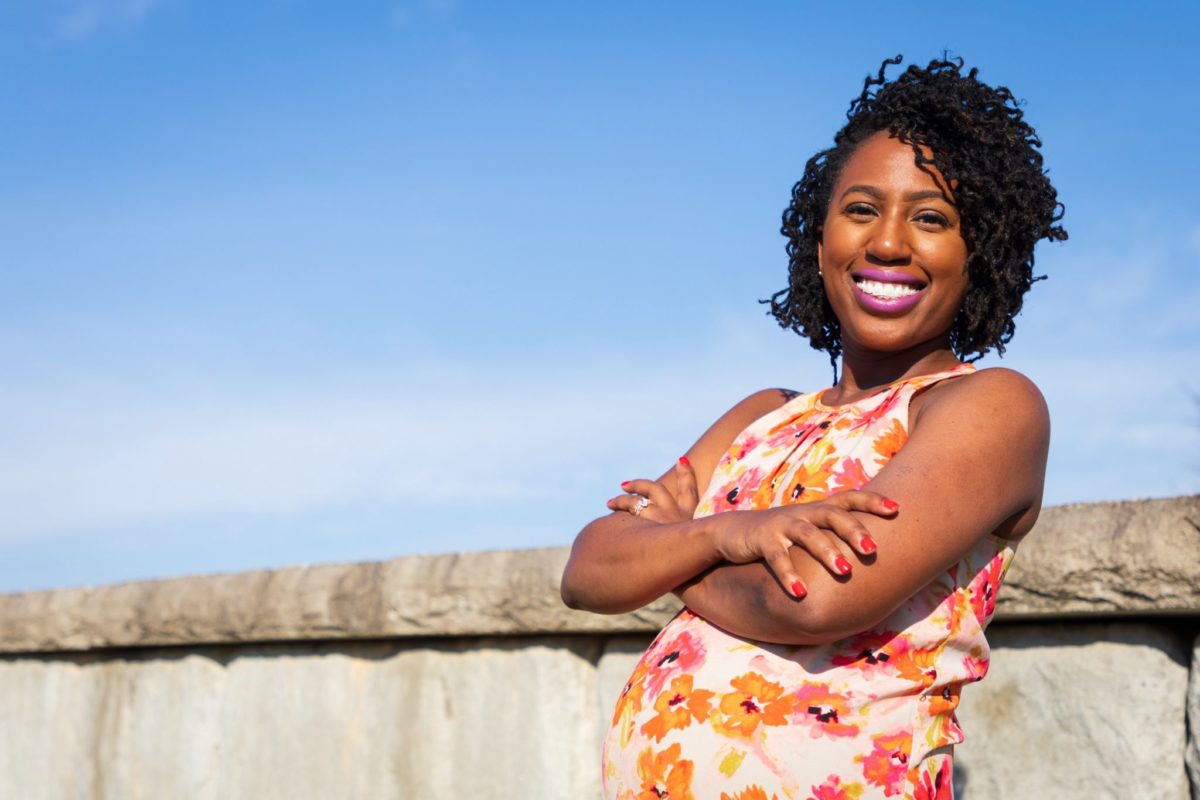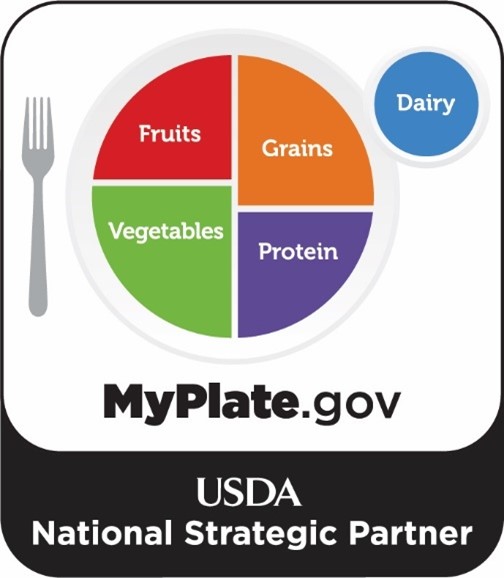We chatted with Chrisonne Henderson, a community lactation consultant and former breastfeeding peer counselor with the WIC program in Washington DC, about her experiences with the WIC peer counselor program. Watch the interview between Carol Dreibelbis from 1,000 Days and Chrisonne about why breastfeeding peer counselors are a critical source of support for breastfeeding mothers in the WIC program.
A transcript of the conversation is shared below.
0:00 CAROL Hello, everyone. Today, I’m here with Chrisonne Henderson, a community lactation consultant and former breastfeeding peer counselor with the WIC program here in Washington, DC. The DC Department of Health serves as the state agency and oversees the WIC nutrition services and the breastfeeding peer counseling program. Welcome, Chrisonne!
0:21 CHRISONNE Hello, thank you so much for having me.
0:23 CAROL Today, we’re here to talk about the breastfeeding peer counselor program. Peer counselors provide information and support to help moms meet their breastfeeding goals. They are moms from the community who have breastfed their own babies, and as a part of the WIC team they serve as a role model for families, they connect with and provide encouragement to moms, and they help mothers manage common breastfeeding concerns.
0:48 Chrisonne, thank you so much for being here and congratulations on your recent promotion from WIC peer counselor to community lactation consultant and breastfeeding coordinator. It’s very exciting.
1:00 I’m really looking forward to hearing about your journey supporting breastfeeding moms through WIC. And I know you first became a WIC peer counselor back in 2012, but first let’s just start at the beginning. What is your own story as a WIC participant and how did WIC help support you on your breastfeeding journey?
1:18 CHRISONNE Once again, thank you. It’s been a long time coming. In 2012, I did become a [WIC] participant during my postpartum when my son was about three months old. I did not receive WIC during my pregnancy, but I’m so grateful that I did start receiving it when my son was three months old.
1:43 And I remember my first appointment, it was the first time I remember being praised about breastfeeding my son exclusively. For my family, this was something that we just did, so no one was really praising me on breastfeeding my baby; it was like, this was what you were supposed to do. And from the other side of the family, it was more like, how long are you going to do this for?
2:15 So, when I was there, I was in a way thrown off – like, wow, they’re really excited that I’m breastfeeding. And not only just breastfeeding, but they always made sure to put that exclusive breastfeeding in there. Like, oh, wow, you’re breastfeeding exclusively. That’s wonderful. Keep it up.
2:32 So I remember being really encouraged about what I was doing by breastfeeding my son, because prior to that, I definitely had some difficulties with breastfeeding.
2:43 And that’s where a spark of interest started for me to learn about lactation, and how to even get into the lactation field as far as a career.
2:55 CAROL That’s really great. Thanks for sharing that. So I’m curious, what made you want to become a peer counselor?
3:02 CHRISONNE That’s a good question. Because, to be honest, when I was approached with the offer, I remember sitting there like, well, what is the breastfeeding peer counselor? Because at the local agency where I was going to receive my checks from – my WIC benefits from – at the time, they did not have a breastfeeding peer counselor.
3:23 But at the same time, like I said, a little bit before having my first WIC appointment, I did start searching to see how to become a lactation professional and finding out what it took to become a lactation consultant and seeing that there were certain requirements that you had to have. And I do remember seeing that at that time, you had to have, I want to say 1,000 hours, at least, under a lactation consultant. And I was just like, wow, I’ll get that right here at this WIC agency. So why not? And that’s how I became a peer counselor.
3:59 But, of course overall I wanted to help and support moms so that they wouldn’t have to deal with or go through some of the issues and problems that came up in my journey with breastfeeding.
4:15 That’s really why I took the position: because I had a passion and wanted to help and educate and support moms in their breastfeeding journeys.
4:26 CAROL That’s really good of you. And you mentioned some of those challenges that you went through. I’m curious, what are some of the biggest challenges you’ve seen as a peer counselor that you’ve seen moms facing when trying to meet their breastfeeding goals, and how as a peer counselor did you help them?
4:46 CHRISONNE It’s a great question. One that stands out the most is that returning back to work can be a bit difficult.
4:55 To be honest, this past year, I didn’t have to hear it as much due to COVID. A lot of moms are able to be at home and they were able to continue breastfeeding their babies. A lot of them saw that as a blessing that they were able to work from home. Or, if their job was closed during this time, they were able to stay home and continue breastfeeding, which allowed them to breastfeed longer than what they expected or to reach certain goals that they, once again, weren’t expecting to reach.
5:28 But, when we do have moms who have to return back to work a little bit sooner than they would want to, something that we do as breastfeeding peer counselors is help mom get pumps through their insurance, helping them and educating them so that they are prepared when they go back to work. So, we’re also talking about laws – breastfeeding and pumping laws – and also helping them as far as getting a schedule together. Pumping so that you can store up some milk before you go back to work, as well. And then also maybe even working on a schedule and seeing when you will be able to pump at work.
5:59 And then, of course, still encouraging them, because even though you may have those laws to protect you pumping, who’s to say that you’re going to have your coworkers who are going to be excited about you taking breaks every couple of hours. Because, of course, we have some moms who have shared with me that, yes, I’m pumping, but every time I have to have someone to cover me, if I have to go pump, there’s always an issue, or someone always has something to say, or sometimes it may be a boss is giving them a hard time.
6:26 So, it’s educating and supporting moms. But of course, there are other challenges that come up with breastfeeding, or milk supply, or even having a lack of support at home. But I feel like the returning to work can be a biggie.
6:43 CAROL I’m curious, why is the peer relationships so important as a peer counselor? In other words, why does it make such a difference that peer counselors are offering that mom-to-mom support, and it’s coming from the community they serve?
6:57 CHRISONNE That’s another great question. I think the peer relationship, and that peer support, is important because as peer counselors, you’ve been on the WIC program. You understand how the WIC program works. You understand how the appointments go, you understand how it feels to go out and use your benefits when you’re in the store.
7:18 So, having that experience, I think, helps moms to feel more comfortable with you. Knowing that I’m going through the same thing you are, or we’re experiencing some of the same things, or even sometimes even the same struggles.
7:35 And I think because of that, and being able to be open with our moms, then they feel that they can be open. They may feel a bit more comfortable to talk to us and share things with us. Because I’ve definitely had some moments where some moms opened up and share some things with me that maybe they didn’t share with a nutritionist or share with the person who was taking their information. I think those things definitely help.
8:05 CAROL That makes a lot of sense. Such a valuable addition to the WIC team, I’m sure.
8:10 Now I would love to hear, what was the most rewarding part about being a breastfeeding peer counselor for you?
8:19 CHRISONNE I would say it’s hearing from moms how you help them. Because sometimes when you have a mom share with you how you help during their journey – I feel like it always comes on the worst day that you’re having, or you feel really bad, or maybe it didn’t go so well with helping a mom with latching her baby on, and sometimes you just feel down or bad. But then you may get a text from a mom that says, you know what, I’ve reached a certain milestone, six months milestone, and I just want to thank you so much for all your help and your support. And it really helps to make you feel good.
8:58 When I first became a peer counselor, like I said, it was 2012 – so sometimes even running into some of those moms that I helped years ago and seeing their children grow. And knowing that I played a part in the baby’s development because I helped mom with breastfeeding, it’s so rewarding. So rewarding just to see that and to know that she remembers me and how I helped her.
9:25 CAROL Yeah, that’s got to be such a great feeling. Thank you so much for sharing that with me.
9:33 As you may know, this year, Congress is working on Child Nutrition Reauthorization, which is a process during which they review the laws governing WIC and other federal child nutrition programs. Through this process, Congress has a really important opportunity this year to improve and strengthen WIC to ensure that families can continue accessing nutritious foods and the support they need to meet their breastfeeding goals.
9:59 Why do you think it’s important for your story and the real-world experiences of peer counselors in general to be part of the conversation when these discussions are happening in Congress?
10:11 CHRISONNE I’m so happy you brought that up because I feel like there’s a difference in knowing – everyone knows WIC is a supplemental nutrition program, and we also give education. But at the same time, WIC for me was a life-changing experience.
10:33 I think hearing those stories definitely makes a difference rather just, oh yeah, I know WIC and that they do this. Hearing that, wow, not only did WIC help her by giving her the benefits as far as food and also giving her education, but at the same time, WIC gave me a place to grow as a breastfeeding peer counselor.
10:55 I’m just so grateful for that offer years ago, when I had no idea what a peer counselor was. I’m so glad I took that because it changed me as a person. It gave me a career. It’s a career and something that I’m truly passionate about.
11:13 I think being able to share that passion and being able to share my story, and peer counselors to share their stories – because I know their stories may not necessarily look exactly like mine – just hearing that is helpful. Rather than just seeing or hearing or knowing what WIC does as far as the nutrition part or the education part.
11:36 Just really seeing what it’s doing in the lives of their participants, and also even their employees.
11:44 CAROL Right. And I think you can only really measure the success of a program by how it’s affecting the lives of families.
11:56 Thanks for talking with me today and sharing your experiences. I really enjoyed our conversation, and I know that our viewers will as well. Thank you.
12:03 CHRISONNE I hope so. Thank you so much. And thank you again for having me.


